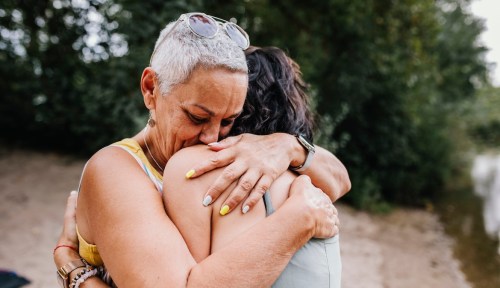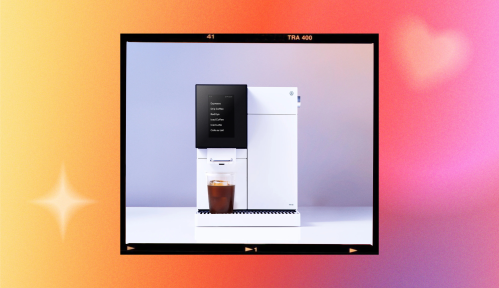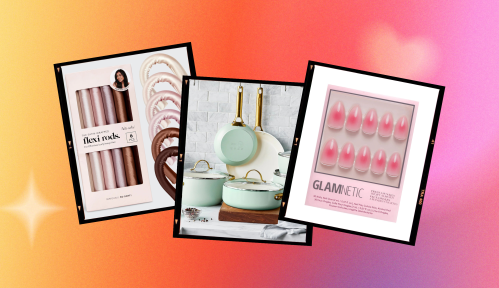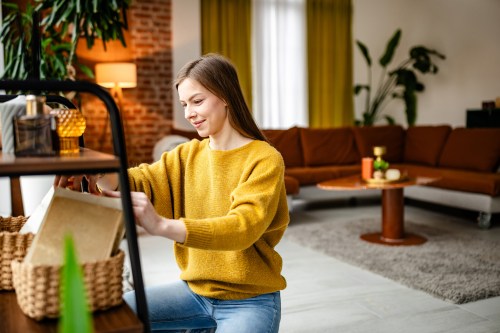If you love binge-watching Married at First Sight, reading a dystopian teen trilogy, or sipping a little wine at the end of your workday, you may find yourself wondering whether or not your delectable guilty pleasures are, well, good for you. It’s understandable. Even though these activities feel great, we’re often reluctant to admit we’ve spent the weekend binging Netflix, or some other primarily harmless habit—like endlessly browsing beauty product sales or wasting hours on Pinterest. Well, you’ll likely be pleased to know that you can drop the shame and embarrassment and indulge for the good of your well-being.
Experts in This Article
Aniko Dunn, Psy.D., is a psychologist at EZCare Clinic in San Francisco.
Deborah J. Cohan, PhD, professor of sociology at the University of South Carolina Beaufort. Before that, Dr. Cohan was an Assistant Professor at Regis College where she was nominated for a college-wide teaching award. She served for three years at the University of Connecticut-Storrs as an Assistant Professor in Residence, was a Visiting Assistant Professor at Connecticut College, Suffolk University, Framingham State College, and the University of Massachusetts-Boston, and was a Lecturer at Harvard University. In addition to teaching thousands of undergraduates, she has also successfully mentored graduate students at Harvard University, Northeastern University, University of Wisconsin-Madison, and the University of Connecticut-Storrs.
“It’s true, we are a bit more connected to our inner child when we engage in guilty pleasures, mischief, or break the rules,” says Deborah J. Cohan, PhD, professor of sociology at the University of South Carolina Beaufort. “There’s a bit of testing how much we can get away with. And there is often a sense of accomplishment in finally giving ourselves permission to do something so out of the norm.”
Your brain and “guilty” pleasures
First of all, there’s no such thing as an objectively “guilty” pleasure. The term is a societal construct to make us feel that our pursuits aren’t as riveting, enlightening, or educational as they could be. This is tied up in subjective cultural and gender norms. (Most people don’t describe blasting classical music or watching hours of football as “guilty pleasures.”)
“While we all believe that we should spend our leisure time doing things that improve our minds and enhance our knowledge, in fact, like all other organs, your brain needs to rest,” says Aniko Dunn, Psy.D, a psychologist at EZCare Clinic in San Francisco, adding that people have “increased positive emotions and reduced negative ones after indulging in the pleasures of guilt.”
Neuroscience supports the hypothesis that indulging in harmless pleasurable habits may be healthy. The area of the brain dubbed the reward pathway releases dopamine, which is the feel-good chemical responsible for our good mood and feelings of health and well-being. Dr. Cohan says that neural pathways in the brain light up when we expose ourselves to things we enjoy. “This is why so many of us feel inspired through travel or seeing musicians and dancers perform live or when we go to the very top of a tall building and see a panoramic view of a whole city,” she says.
But we also acquire similar feelings by engaging in smaller pursuits and pleasures we find rewarding, too. Oddly enough, playing Two Dots for half an hour at lunch or catching the Real Housewives of Anywhere each week may have a similar effect. A literature review published in Frontiers in Psychology found some evidence that a little mindless video gaming can improve well-being, add to a sense of accomplishment, and reduce stress. And, according to a study published in PLoS One, simply allowing yourself to enjoy what you’re doing (e.g., accessing self-compassion) can help you cope with feelings like anxiety and depression.
Can your pleasures become liabilities
Can too much of a guilty good thing backfire? The short answer is yes. “Too much of anything is never great, and the same goes for this. If we’re staying up all night…while binge-watching shows, there may be more going on underneath the surface, and what seems like pleasure might be masking pain, fear, or avoidance,” Dr. Cohan says.
So check in with yourself both during and after your guilty pleasure party: Do you feel refreshed and satisfied? Do you feel drained? Energized? Did putting off your to-do list for a few hours actually help you feel a bit more ready to tackle it later on? The important thing to remember is that there’s nothing wrong with a self-care practice that involves laughing your way through The Bachelorette—as long as it is actually contributing to your overall relaxation and well-being.
If you find yourself feeling great but bogged down with ideas of what you “should” be doing, try to reframe some of those thoughts so you can enjoy your leisure time without guilt. “For those of us who go about our lives being responsible almost all the time, these moments of rule-breaking, mischief, and guilty pleasures add flavor, color, vibrancy, and richness to our lives and often remind us of the people we once were or longed to be,” says Dr. Cohan. This is especially important over the last year and a half when so many of us have had to weather enormous challenges. If a good romance novel helps make life a little easier to navigate right now, by all means, enjoy it (guilt-free)!
Oh hi! You look like someone who loves free workouts, discounts for cutting-edge wellness brands, and exclusive Well+Good content. Sign up for Well+, our online community of wellness insiders, and unlock your rewards instantly.
Sign Up for Our Daily Newsletter
Get all the latest in wellness, trends, food, fitness, beauty, and more delivered right to your inbox.
Got it, you've been added to our email list.











